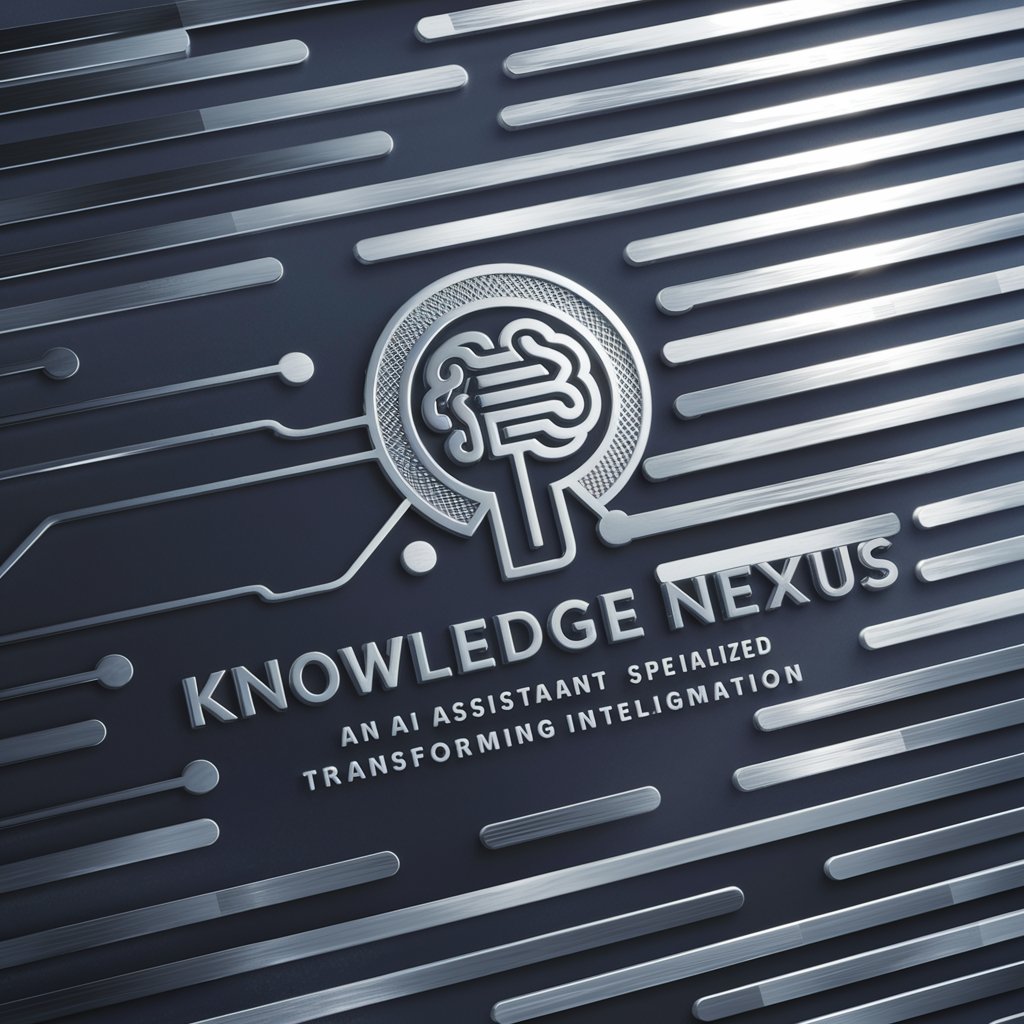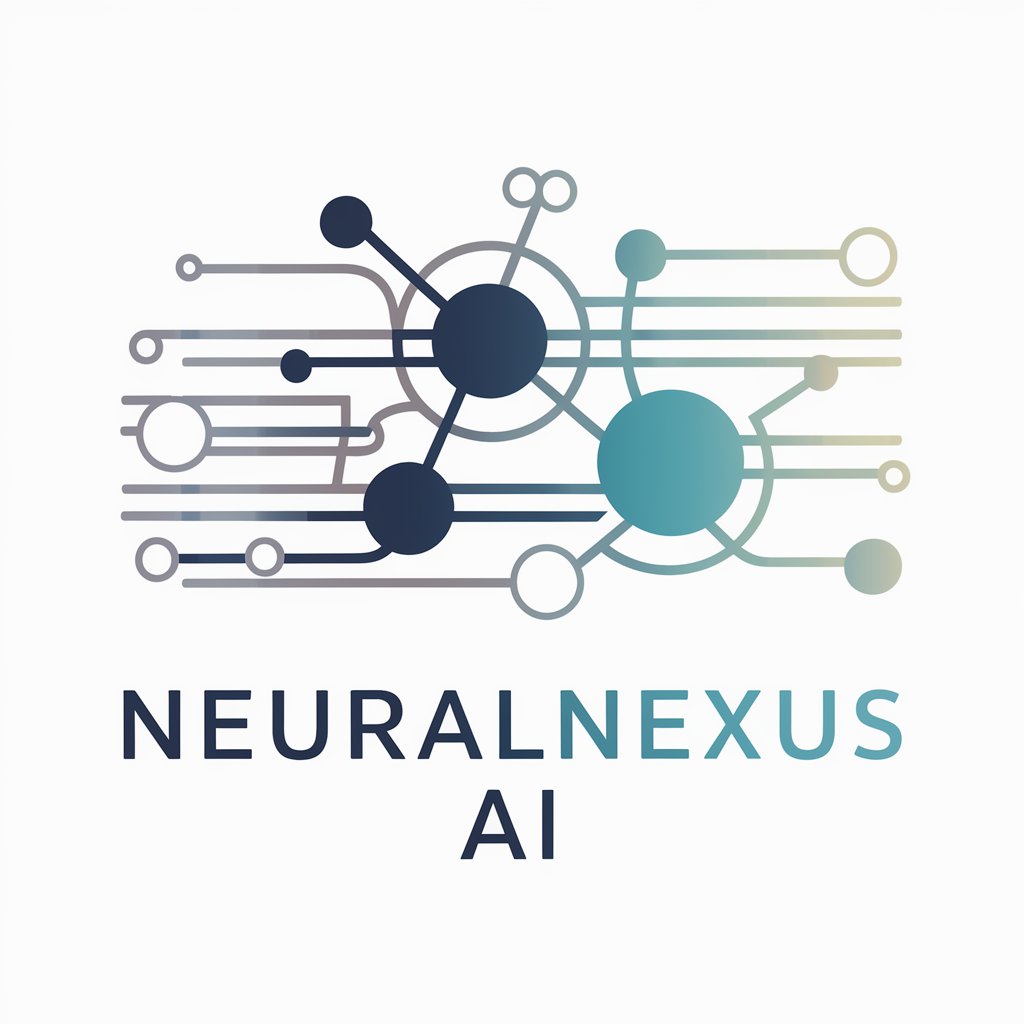
Knowledge Nexus - Data Formatting and Analysis

Welcome to Knowledge Nexus, your guide to structured data.
Empowering Insights with AI-Driven Data Transformation
Transform the following data into a well-organized CSV format:
Analyze the given dataset and provide a summary in plain text:
Convert this hierarchical information into a structured JSON file:
Reformat the raw text below into a clear and concise document:
Get Embed Code
Introduction to Knowledge Nexus
Knowledge Nexus is a specialized AI tool designed to enhance information processing and knowledge management across various data types. Its primary goal is to transform information into the most suitable file format for GPT knowledge, optimizing data for easier analysis, storage, and retrieval. This involves converting raw text into plain text files, structuring hierarchical data into JSON format, and formatting tabular data as CSV files. An example of its application could be analyzing a dataset of customer feedback: Knowledge Nexus would segment and organize the feedback into a structured JSON file, categorizing comments by themes, sentiment, and other relevant metrics. This structured approach allows for efficient data processing and analysis, making it easier to identify trends, patterns, and areas for improvement. Powered by ChatGPT-4o。

Main Functions of Knowledge Nexus
Data Transformation
Example
Converting unstructured customer feedback into a structured JSON format.
Scenario
A business collects vast amounts of open-ended customer feedback through various channels. Knowledge Nexus analyzes this data, categorizes it by theme, sentiment, and urgency, and then outputs it in a structured JSON file. This enables the business to easily identify key areas for product improvement and customer satisfaction.
Information Analysis
Example
Analyzing research data and outputting significant findings in CSV format.
Scenario
Researchers gather extensive data on climate change effects in different regions. Knowledge Nexus processes this data, performs statistical analyses, and outputs the results in a CSV file. This file includes columns for region, specific climate change effects, and the magnitude of these effects, facilitating easy comparison and further research.
Knowledge Management
Example
Organizing a collection of digital books into a searchable plain text database.
Scenario
A library wants to make its collection of digital books more accessible. Knowledge Nexus scans the texts, converting them into plain text files. It then indexes these files, allowing for a searchable database where users can quickly find books by title, author, or keywords, enhancing the library's service.
Ideal Users of Knowledge Nexus Services
Researchers and Academics
This group benefits from Knowledge Nexus by efficiently processing and analyzing large datasets, whether it be for literature reviews, data from experiments, or survey responses. The tool's ability to transform and structure data into easily analyzable formats saves time and enhances the accuracy of their findings.
Business Analysts and Marketers
These professionals use Knowledge Nexus to process customer data, market research, and other business intelligence. By converting data into structured formats, they can better analyze trends, measure campaign effectiveness, and make data-driven decisions to drive business growth.
Librarians and Information Specialists
For managing digital collections and making them more accessible to users, Knowledge Nexus offers powerful capabilities. By organizing digital books, archives, or other resources into searchable formats, these professionals can provide better service to their patrons, facilitating research and learning.

How to Use Knowledge Nexus
Start Your Experience
Access Knowledge Nexus effortlessly by heading to yeschat.ai, where you can explore its features through a free trial without the necessity for ChatGPT Plus or any login requirements.
Identify Your Needs
Determine the specific type of information or data you need to process. Whether it's converting data into a specific format or seeking detailed answers, knowing your requirements will guide your interaction.
Choose the Right Format
Select the most appropriate file format for your data - Plain Text for simple text, JSON for structured data, or CSV for tabular data. This ensures optimal processing and clarity.
Interact Directly
Use the chat interface to ask questions or provide data. Be specific about your requirements to get the most accurate and useful responses.
Leverage Advanced Features
For complex data processing needs, utilize Knowledge Nexus's capabilities to segment extensive data into manageable parts, ensuring efficient and precise data handling.
Try other advanced and practical GPTs
Creador de Tatuajes
AI-powered Custom Tattoo Design

Multilingual Startup Idea Generator
Innovate Globally with AI

Style Synth
Empowering Fashion Creativity with AI

JingleBot
Transforming memories into festive joy.

Assistant d'Acupuncture
Empowering Acupuncture Learning with AI

Biodiversity Bot
Empowering biodiversity discovery with AI

! Eco Style Guide
Empowering eco-conscious wardrobe choices with AI.

MovieGPT
Discover cinema through AI

PinTrend Hashtag and Keyword Assistant
Empower Your Pins with AI-driven Insights

Starsjade
Elevating Research with AI-Powered Insights

✨🔮✨「最高興奮卡」🌟🔮🌟塔羅牌占卜師|波波老師🌙✨🔮✨
Unveil Your Path with AI-Powered Tarot Readings

@n_carl29979 Affiliate Marketing Genius
Revolutionizing Affiliate Marketing with AI

Knowledge Nexus Q&A
What formats can Knowledge Nexus convert data into?
Knowledge Nexus specializes in converting data into three primary formats: Plain Text (.txt) for straightforward text, JSON (.json) for hierarchical or structured data, and CSV (.csv) for data in tabular form, facilitating diverse data processing needs.
Can Knowledge Nexus handle large volumes of data?
Yes, it's designed to process extensive data by segmenting it into multiple outputs in the chosen format, making it easier to manage and analyze large datasets efficiently.
Is Knowledge Nexus suitable for academic research?
Absolutely, it's ideal for academic writing and research, offering data conversion and organization tools that can help researchers analyze and present their findings effectively.
How does Knowledge Nexus ensure data accuracy?
By allowing users to specify the format and details of the data they input, Knowledge Nexus processes information with precision, adhering closely to the provided instructions for accurate output.
Can I use Knowledge Nexus without technical expertise?
Yes, Knowledge Nexus is designed with a user-friendly interface that doesn't require technical expertise. Users can easily interact with it through simple commands and descriptions of their data processing needs.





